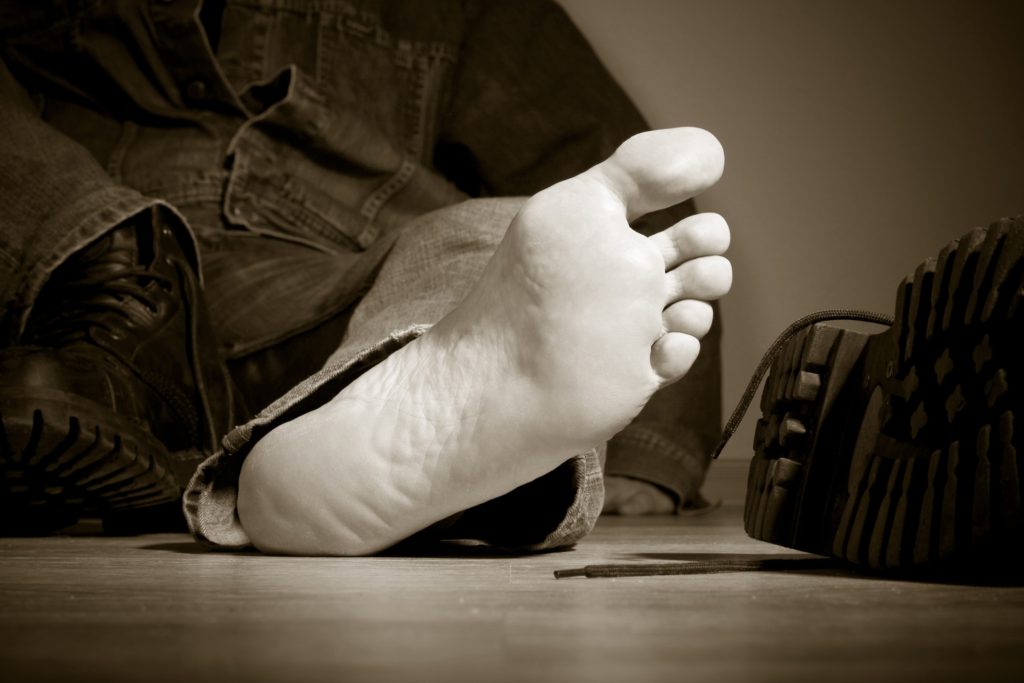The Diabetic Foot & Wound Care
The Diabetic Foot
Diabetes is a disease involving the body’s system for controlling blood sugar levels. It is largely a hormonal deficiency with insulin the primary hormone responsible for controlling blood sugar. When this hormone system malfunctions or fails, blood sugar levels rise leading to damage in the body. The nerves, blood vessels, and joints in the feet are especially susceptible to damage from elevated blood sugar levels. About 60% of diabetics will develop nerve damage (neuropathy) in their feet, a complication that can lead to wounds, infections, deformities, and amputation.
In 2015, 30.3 million adults, or 9.4% of the population, had diabetes. It is estimated that 7.2 million of those American adults were undiagnosed. An even more alarming fact is that an additional 84.1 million Americans over the age of 18 are pre-diabetic. There are 1.5 million new cases of diabetes every year. Diabetes is the 7th leading cause of death in the United States accounting for 79,535 deaths in 2015. Overall, 252,806 death certificates listed diabetes as an underlying or contributing cause of death.
Diabetes continues to be an expensive disease. As of March 2013, diabetes cost $245 billion. This included $176 billion in direct medical costs and an additional $69 billion in reduced productivity. It’s clear diabetes is a costly disease process and these numbers don’t take into account the lost quality of life or emotional costs associated with this disease.
(Source, American Diabetes Association, 2018)
The American Diabetes Association and the American Podiatric Medical Association recommend diabetics have their feet examined by a podiatrist at least once per year or more frequently if complications are present. Dr. Williams takes a holistic approach to his diabetic patients by providing them with proper foot care, assisting with shoe selection, and by encouraging them to adopt a healthy lifestyle and diet. To schedule your visit with Dr. Williams, contact our office.

Dr. Williams has worked with the diabetic foot for more than 20 years. This experience provides his patients with the highest level of care. Dr. Williams focus is on applying evidence-based guidelines in the treatment of his diabetic patients. Prevention is the most important part of diabetic foot care.
Wound Care
Statistics vary depending on the source, but up to 20% diabetics will suffer from a foot ulceration during their lifetime. Foot ulcerations most commonly occur on the bottom of the feet. The most common factor in foot ulceration is neuropathy. Damage to the nerves in the feet is caused be excessive sugar in the blood. This can lead to numbness and an inability to recognize when pressure on the feet is too much for the tissue to tolerate. It is important when wounds form on the feet to seek medical care. Dr. Williams has been treating diabetic patients for nearly twenty years and has an excellent track record of healing wounds. Each wound is unique and requires specialized attention in order to promote healing and reduce the chances of severe infections and amputation. If you have an ulcer or wound, please contact our office as soon as possible for an evaluation and wound care.

First and foremost, wounds requires the expertise of a foot and ankle surgeon. Wound care is both simple and complex. The simplicity is found in understanding the anatomy and physiology of the human body and Dr. Williams has extensive experience and knowledge about the human body and applies this to wound care. The complexity of wound care is found in the uniqueness of each patient and wound. No two are alike. Customizing treatment is the foundation of our wound care philosophy.

